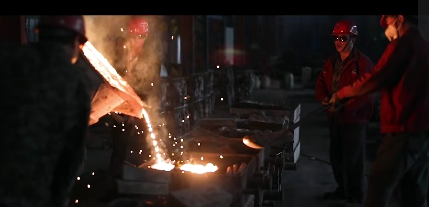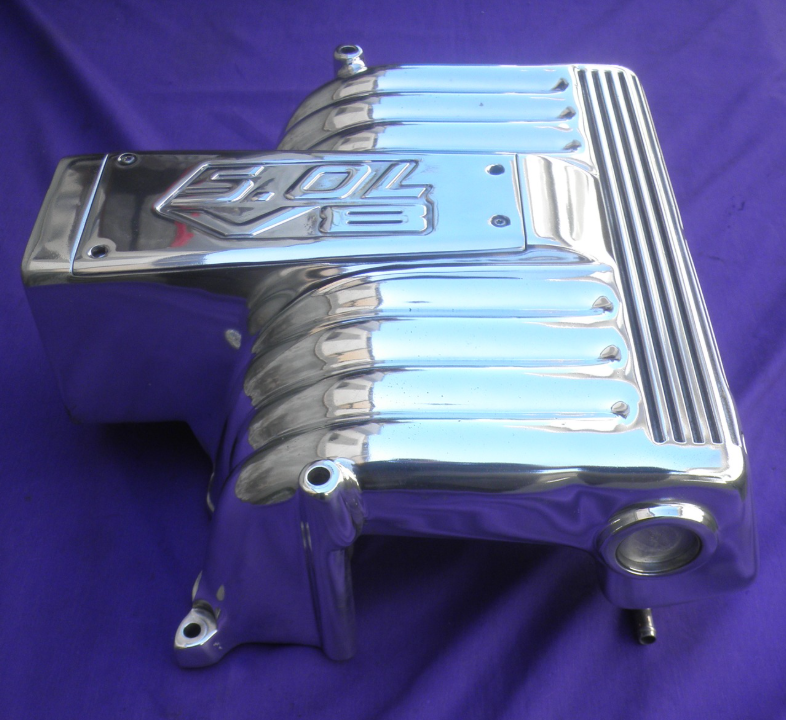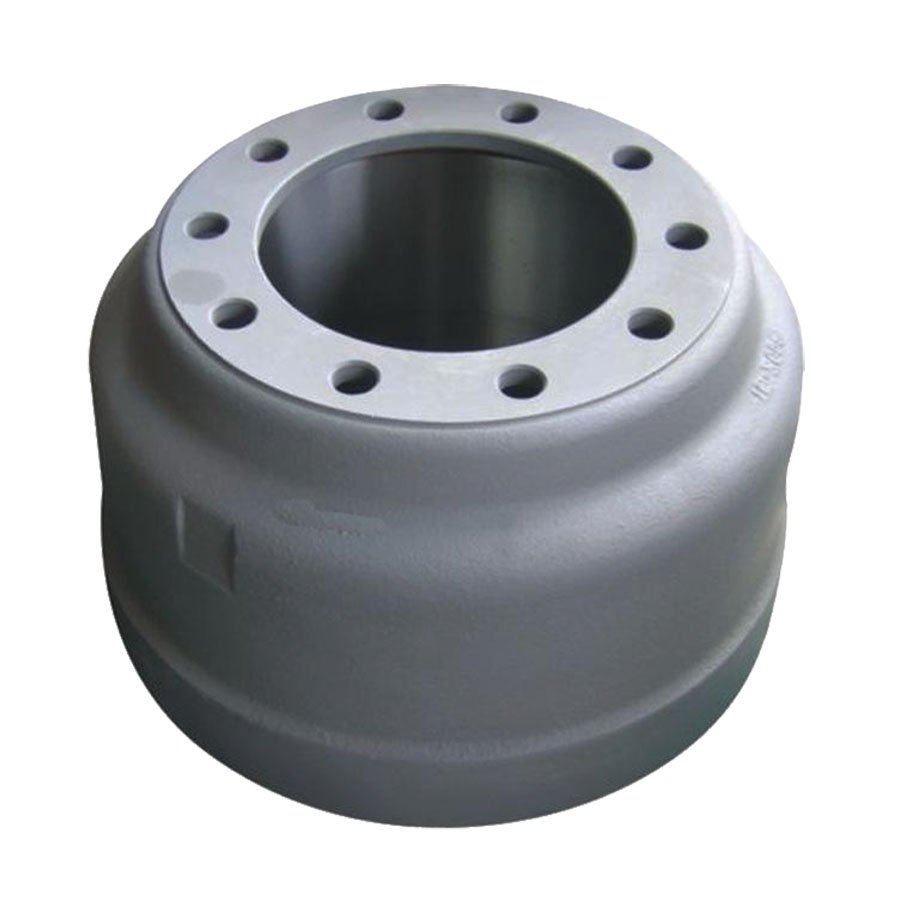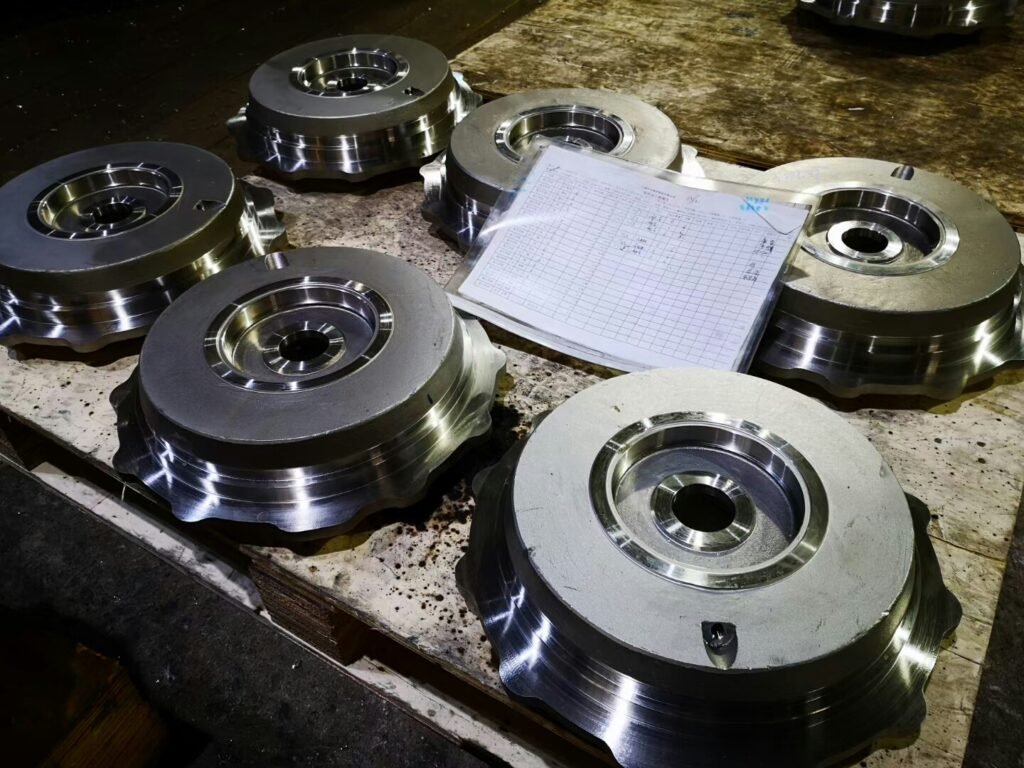Introduction
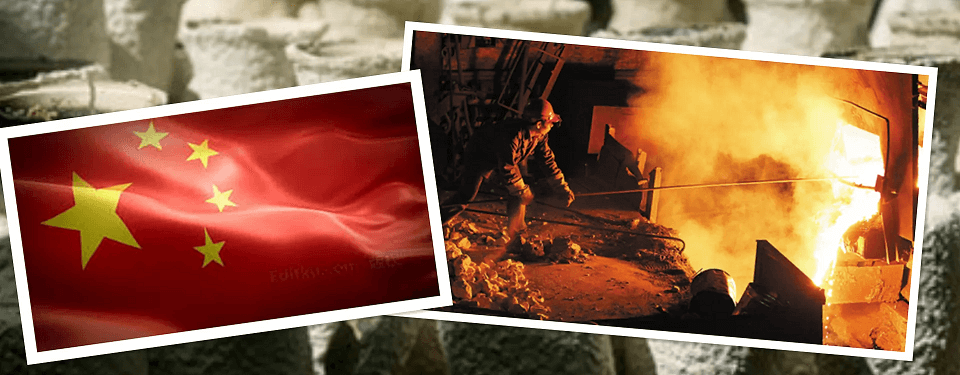
When it comes to manufacturing high-quality components for a variety of industries, carbon steel casting products play a pivotal role due to their strength, durability, and versatility. From automotive parts to heavy machinery, these products are integral in many applications where resilience and reliability are crucial. Choosing the right supplier for carbon steel castings is a decision that significantly impacts product quality, cost efficiency, and overall project success.
China has emerged as a leading manufacturer of carbon steel casting products, offering a compelling mix of advanced technology, competitive pricing, and a well-established supply chain. For companies seeking reliable and cost-effective casting solutions, China presents a strong option. In this article, we will explore the reasons why choosing a Chinese manufacturer for carbon steel castings can be a smart decision, delving into aspects like quality, technological advancements, and the country’s unique manufacturing strengths.
What is Carbon Steel Casting?
Before diving into the specifics of Chinese carbon steel castings, it’s essential to understand what carbon steel casting entails. Carbon steel casting is a process in which molten steel is poured into a mold to create a desired shape. This method is widely used in various industries due to its ability to produce complex shapes and sizes with high precision.
Carbon steel itself is an alloy of iron and carbon, with the carbon content varying to create different types of steel with specific properties. This versatility makes carbon steel an ideal material for casting, as it can be tailored to meet the specific needs of different applications.
Types of Carbon Steel Castings
There are several types of carbon steel used in castings, each with unique characteristics:
- Low Carbon Steel: Contains less than 0.25% carbon. It is known for its excellent ductility and weldability, making it suitable for applications requiring malleability and toughness, such as automotive panels and pipes.
- Medium Carbon Steel: With a carbon content between 0.25% and 0.60%, medium carbon steel offers a good balance of strength and ductility. It is commonly used in machinery components, gears, and railway tracks.
- High Carbon Steel: Contains more than 0.60% carbon, providing high strength and hardness but reduced ductility. This type is ideal for products that require wear resistance, like cutting tools and industrial blades.
Each type of carbon steel offers different benefits, making them suitable for various casting applications based on the required mechanical properties.
Benefits of Carbon Steel in Casting
Carbon steel is a popular choice for casting because of its excellent mechanical properties and versatility. Some of the key benefits include:
- Strength and Durability: Carbon steel is known for its high tensile strength, making it capable of withstanding heavy loads and high-pressure environments. This makes carbon steel castings ideal for use in construction, mining, and other heavy-duty applications.
- Cost-Effectiveness: Compared to other alloys like stainless steel or aluminum, carbon steel is relatively inexpensive. This affordability does not come at the expense of quality, making it a cost-effective choice for many industries.
- Versatility: The ability to adjust carbon content and alloying elements allows manufacturers to produce a wide range of steel grades, each tailored to specific requirements. This versatility makes carbon steel suitable for various applications, from high-strength gears to corrosion-resistant pipes.
By understanding the fundamental aspects of carbon steel casting, it becomes clearer why selecting the right supplier is so crucial. The quality of the castings directly affects the performance and longevity of the end products, making it essential to choose a reliable manufacturer. In the next sections, we will explore why China is a top choice for sourcing carbon steel casting products.
What is Carbon Steel Casting?
Understanding carbon steel casting and its types is crucial for appreciating its importance in various industrial applications. In carbon steel casting, molten carbon steel is poured into molds to create complex shapes and detailed components. This process is known for its ability to produce highly durable and wear-resistant parts, which makes it ideal for industries like automotive, construction, and machinery manufacturing.
Types of Carbon Steel Castings
Carbon steel castings can be classified based on the carbon content, which affects their mechanical properties:
- Low Carbon Steel Castings: These castings have a carbon content of less than 0.25%. They are known for their excellent ductility, making them easy to work with, bend, and weld. Due to their lower strength, they are typically used in applications where flexibility is more important than strength, such as in the manufacturing of car body parts and pipes.
- Medium Carbon Steel Castings: With a carbon content ranging from 0.25% to 0.60%, these castings offer a good balance between strength and ductility. They are often used in applications that require higher strength than low carbon steel but do not demand the hardness of high carbon steel. Typical uses include axles, gears, and structural components.
- High Carbon Steel Castings: These castings contain more than 0.60% carbon, giving them high strength and hardness but lower ductility. They are ideal for applications where wear resistance is critical, such as in cutting tools, blades, and industrial machinery parts.
Benefits of Carbon Steel in Casting
Carbon steel offers several advantages when used in casting:
- High Strength and Durability: Carbon steel is renowned for its high tensile strength and resistance to wear and tear. This makes it suitable for components that need to endure heavy loads or harsh environments.
- Cost-Effective: Compared to other alloys, carbon steel is relatively inexpensive. Its cost-effectiveness, combined with its strength, makes it an attractive option for many industries.
- Versatility in Application: The varying carbon content in carbon steel allows manufacturers to tailor its properties to specific applications, from flexible, weldable materials to hard, wear-resistant components.
Understanding these types and benefits of carbon steel castings highlights the importance of choosing a high-quality manufacturer. The quality of the steel and the precision of the casting process can significantly impact the performance of the final product.
The Importance of Quality in Carbon Steel Casting Products
Quality is a critical factor in the production of carbon steel casting products. High-quality castings ensure that components perform effectively in their intended applications and have a long service life. Poor-quality castings, on the other hand, can lead to failures, increased maintenance costs, and even safety hazards.
Impact on Product Performance
The performance of carbon steel casting products heavily depends on their quality. High-quality castings will have uniform strength and resistance to wear, which are crucial for components that must endure high stress or friction. Poor-quality castings might have defects such as porosity, cracks, or uneven hardness, which can compromise the component’s integrity and lead to premature failure.
Common Quality Standards and Certifications
To ensure the quality of carbon steel casting products, manufacturers adhere to international standards and certifications. Some of the most commonly recognized standards include:
- ISO 9001: A quality management system standard that ensures manufacturers consistently produce high-quality products and strive for continuous improvement.
- ASTM International Standards: These standards specify the requirements for different types of carbon steel castings, including their mechanical properties, chemical composition, and testing methods.
- EN Standards: European Norms (EN) provide specific standards for steel castings, ensuring that products meet rigorous quality and safety requirements.
Compliance with these standards ensures that the carbon steel castings are of high quality and suitable for their intended applications.
Signs of High-Quality Carbon Steel Castings
Identifying high-quality carbon steel castings involves looking for specific signs and performing certain tests:
- Visual Inspection: High-quality castings should have a smooth surface with no visible cracks, porosity, or other defects. A uniform surface finish indicates good casting practices and quality control.
- Mechanical Testing: Tensile tests, hardness tests, and impact tests can be conducted to evaluate the strength, hardness, and toughness of the castings. These tests help ensure that the castings meet the required mechanical properties for their application.
- Non-Destructive Testing (NDT): Methods like ultrasonic testing, radiographic testing, and magnetic particle testing can detect internal defects without damaging the castings. NDT is crucial for ensuring the integrity and reliability of critical components.
Ensuring that carbon steel castings meet these quality criteria is essential for their performance and safety in various applications. This brings us to the next critical point: why choose China as a source for high-quality carbon steel castings?
Why Choose Chinese Carbon Steel Casting Products?
China has established itself as a global leader in manufacturing, particularly in the production of carbon steel casting products. Several factors contribute to China’s dominance in this field, making it a preferred choice for companies worldwide.
Historical Context and Growth of Chinese Casting Industry
The casting industry in China has a rich history, with roots that trace back several centuries. However, it wasn’t until the late 20th century that China began to emerge as a global powerhouse in manufacturing. This growth was driven by economic reforms, significant investments in industrial infrastructure, and a focus on building a skilled workforce. Today, China is one of the largest producers of carbon steel castings in the world, supplying products to various industries globally.
Technological Advancements in Chinese Foundries
One of the key reasons to choose Chinese carbon steel casting products is the technological advancements that Chinese foundries have embraced. Many Chinese manufacturers have adopted state-of-the-art casting technologies, such as:
- Precision Casting Techniques: Advanced techniques like investment casting and lost foam casting allow Chinese manufacturers to produce highly accurate and detailed components with minimal defects.
- Automation and Robotics: Automation in casting processes improves consistency and reduces the chances of human error. Robotic systems are used for tasks such as mold making, pouring, and finishing, ensuring high precision and quality.
- Computer-Aided Design (CAD) and Simulation: Chinese foundries often use CAD software and casting simulation tools to optimize the design and casting process. This reduces the risk of defects and ensures that the final product meets the desired specifications.
These technological advancements have enabled Chinese manufacturers to produce high-quality carbon steel castings that meet or exceed international standards.
Competitive Pricing
China’s ability to offer competitive pricing without compromising on quality is another major advantage. Several factors contribute to this:
- Economies of Scale: China’s large-scale production capabilities allow manufacturers to benefit from economies of scale, reducing the cost per unit and making their products more affordable.
- Lower Labor Costs: Although labor costs in China have risen in recent years, they are still relatively lower compared to Western countries. This cost advantage translates into more affordable casting products.
- Government Support: The Chinese government provides substantial support to the manufacturing sector through subsidies, tax incentives, and infrastructure development. This support helps reduce production costs and allows manufacturers to offer competitive prices.
Skilled Workforce
China’s manufacturing sector benefits from a large, skilled workforce with expertise in casting processes. The country’s vocational training programs and technical education systems have produced a workforce that is knowledgeable in the latest casting techniques and technologies. This skilled labor pool ensures that Chinese manufacturers can maintain high standards of quality and efficiency.
Strong Supply Chain Infrastructure
China’s robust supply chain infrastructure is another reason why many companies choose to source carbon steel casting products from Chinese manufacturers. The country’s extensive network of suppliers, transportation, and logistics providers enables manufacturers to source raw materials efficiently and deliver finished products to customers on time. This strong supply chain reduces lead times and ensures reliable delivery, which is crucial for maintaining project schedules and meeting customer expectations.
In conclusion, China’s combination of advanced technology, competitive pricing, skilled workforce, and strong supply chain infrastructure makes it an attractive choice for companies looking to source high-quality carbon steel casting products.
Comparing Chinese Carbon Steel Castings with Other Countries
When choosing a supplier for carbon steel casting products, it’s important to compare options from different countries to ensure you make the best decision for your needs. Here, we will compare Chinese carbon steel castings with those produced in other major manufacturing countries.
Comparison with Other Major Producers
- United States: The U.S. is known for its high-quality manufacturing standards and strict regulatory environment. However, the cost of production in the U.S. is significantly higher due to higher labor costs and stringent environmental regulations. As a result, American carbon steel castings are often more expensive than those from China.
- Germany: Germany is renowned for its precision engineering and high-quality manufacturing. German castings are highly regarded for their accuracy and durability. However, similar to the U.S., the cost of production in Germany is high, making German castings more expensive than their Chinese counterparts.
- India: India has emerged as a competitive player in the casting industry, offering affordable products with decent quality. However, Indian manufacturers may not have the same level of technological advancement and quality control as Chinese manufacturers, which can result in variations in product quality.
Strengths and Weaknesses of Chinese Products
Strengths:
- Cost-Effectiveness: Chinese carbon steel castings are generally more affordable due to lower production costs and economies of scale.
- Technological Advancements: Chinese manufacturers have embraced advanced technologies, resulting in high-quality products with minimal defects.
- Large-Scale Production: China’s large-scale production capabilities allow for quicker turnaround times and the ability to meet large orders efficiently.
Weaknesses:
- Perceived Quality Concerns: Despite advancements, some buyers still have concerns about the quality of Chinese products due to past experiences or misconceptions.
- Regulatory and Compliance Issues: While many Chinese manufacturers comply with international standards, some may not adhere to the same stringent regulations as manufacturers in the U.S. or Europe.
Overall, Chinese carbon steel castings offer a good balance of quality and affordability, making them a strong choice for many companies. However, it’s important to conduct thorough due diligence when selecting a supplier to ensure they meet your specific quality and regulatory requirements.
Key Considerations When Choosing a Chinese Carbon Steel Casting Supplier
Selecting the right supplier for carbon steel casting products is a critical decision that can significantly impact your project’s success. Here are some key considerations to keep in mind when choosing a Chinese carbon steel casting supplier.
Assessing Supplier Capabilities
Before choosing a supplier, it’s important to assess their capabilities to ensure they can meet your specific requirements. Here are some factors to consider:
- Production Capacity: Ensure the supplier has the capacity to produce the volume of castings you need within your desired timeframe. A supplier with large-scale production capabilities will be better equipped to handle large orders and meet tight deadlines.
- Technical Expertise: Look for a supplier with a strong technical background and expertise in carbon steel casting. A knowledgeable supplier will be able to provide guidance on material selection, design optimization, and casting processes to ensure the best results.
- Experience and Track Record: Consider the supplier’s experience in the industry and their track record of delivering high-quality products. A supplier with a proven track record of success is more likely to provide reliable and consistent service.
Understanding Quality Control Measures
Quality control is a critical aspect of the casting process, as it ensures that the final products meet the required specifications and standards. Here are some quality control measures to look for in a supplier:
- In-House Testing Capabilities: A supplier with in-house testing capabilities, such as mechanical testing and non-destructive testing (NDT), will be able to conduct thorough inspections and ensure the quality of their castings.
- Compliance with Standards: Ensure the supplier complies with relevant international standards, such as ISO 9001, ASTM, and EN, to guarantee the quality and safety of their products.
- Continuous Improvement: Look for a supplier that is committed to continuous improvement and invests in new technologies and processes to enhance product quality and efficiency.
Communication and Customer Service
Effective communication and customer service are essential for a successful partnership with a supplier. Here are some factors to consider:
- Clear and Responsive Communication: Choose a supplier that is responsive and communicates clearly throughout the procurement process. A supplier that promptly addresses your questions and concerns will help ensure a smooth and efficient process.
- After-Sales Support: Consider the level of after-sales support the supplier offers. A supplier that provides excellent after-sales service, including technical support and assistance with any issues that may arise, will help ensure a positive experience.
By considering these factors, you can select a Chinese carbon steel casting supplier that meets your specific needs and ensures the success of your project.
Case Studies and Success Stories
To further illustrate the benefits of choosing Chinese carbon steel casting products, let’s look at some real-world examples of successful projects that have sourced castings from China.
Examples of Successful Projects Using Chinese Carbon Steel Castings
- Automotive Industry: A major automotive manufacturer in Europe chose a Chinese supplier for their carbon steel casting needs. The supplier provided high-quality components at a competitive price, allowing the manufacturer to reduce costs while maintaining product quality. The success of this partnership led to a long-term relationship, with the Chinese supplier now providing castings for multiple vehicle models.
- Construction Equipment: A leading construction equipment manufacturer in the United States partnered with a Chinese foundry to produce heavy-duty components for their machinery. The Chinese supplier’s advanced casting techniques and rigorous quality control measures ensured the durability and reliability of the components, contributing to the overall performance and longevity of the equipment.
- Oil and Gas Industry: A global oil and gas company selected a Chinese manufacturer for their carbon steel casting requirements. The Chinese supplier’s ability to produce complex castings with tight tolerances and high strength made them an ideal choice for the demanding applications in the oil and gas sector. The partnership resulted in significant cost savings and improved operational efficiency for the company.
Lessons Learned from These Case Studies
These case studies highlight several key lessons for companies considering sourcing carbon steel casting products from China:
- Quality and Cost: By selecting a reputable Chinese supplier, companies can achieve a balance between quality and cost, resulting in high-quality products at competitive prices.
- Technological Capabilities: Chinese manufacturers have advanced technological capabilities that enable them to produce complex and precise castings, making them suitable for a wide range of applications.
- Reliability and Support: A strong partnership with a Chinese supplier can provide reliable delivery and excellent support, ensuring the success of the project.
By considering these lessons and conducting thorough research, companies can confidently choose a Chinese carbon steel casting supplier that meets their needs.
Potential Challenges and How to Overcome Them
While there are many advantages to sourcing carbon steel casting products from China, there are also potential challenges that companies should be aware of. Here are some common concerns and how to overcome them.
Common Concerns about Sourcing from China
- Quality Issues: One of the most common concerns about sourcing from China is the potential for quality issues. While many Chinese manufacturers produce high-quality products, there have been instances of subpar products entering the market.
- Communication Barriers: Language barriers and cultural differences can sometimes lead to miscommunication and misunderstandings during the procurement process.
- Regulatory Compliance: Ensuring that the supplier complies with relevant regulations and standards can be challenging, especially when dealing with international suppliers.
Navigating Import Regulations and Logistics
Importing carbon steel castings from China requires navigating various regulations and logistics. Here are some tips to help you manage this process:
- Understand Import Regulations: Familiarize yourself with the import regulations and requirements for your country, including customs duties, tariffs, and documentation. Working with a customs broker or freight forwarder can help simplify the process.
- Plan for Lead Times: Shipping products from China can take time, especially if there are delays at ports or customs. Plan for lead times and factor them into your project schedule to avoid delays.
- Choose Reliable Shipping Partners: Work with reliable shipping partners who have experience handling international shipments and can provide tracking and updates throughout the shipping process.
Mitigating Risks with Proper Due Diligence
To mitigate risks when sourcing from China, it’s essential to conduct proper due diligence on potential suppliers. Here are some steps to take:
- Research and Vet Suppliers: Conduct thorough research on potential suppliers, including checking their references, reviewing their certifications, and visiting their facilities if possible.
- Request Samples: Request samples from the supplier to evaluate the quality of their products before placing a large order.
- Use Third-Party Inspections: Consider using third-party inspection services to verify the quality of the products before shipment.
By taking these steps, you can minimize risks and ensure a successful partnership with a Chinese carbon steel casting supplier.
Future Trends in the Chinese Carbon Steel Casting Industry
The Chinese carbon steel casting industry is constantly evolving, with new trends and developments shaping the future of the sector. Here are some key trends to watch:
Technological Innovations and Automation
Chinese manufacturers are increasingly adopting new technologies and automation to improve efficiency and quality. Some of the emerging technologies in the casting industry include:
- Artificial Intelligence (AI): AI is being used to optimize casting processes, predict defects, and improve quality control.
- Internet of Things (IoT): IoT devices are being used to monitor equipment and processes in real-time, allowing for predictive maintenance and reduced downtime.
- 3D Printing: 3D printing is being used to create molds and prototypes, reducing lead times and improving design flexibility.
These technological innovations are helping Chinese manufacturers stay competitive and meet the growing demand for high-quality casting products.
Sustainability and Eco-Friendly Practices
Sustainability is becoming increasingly important in the manufacturing industry, and Chinese manufacturers are no exception. Many are adopting eco-friendly practices to reduce their environmental impact, such as:
- Recycling and Reusing Materials: Manufacturers are finding ways to recycle and reuse materials, reducing waste and conserving resources.
- Energy Efficiency: Manufacturers are investing in energy-efficient equipment and processes to reduce energy consumption and lower their carbon footprint.
- Green Manufacturing: Some manufacturers are adopting green manufacturing practices, such as using non-toxic materials and reducing emissions.
These sustainability efforts are helping Chinese manufacturers meet the growing demand for environmentally friendly products and improve their reputation in the global market.
Market Growth and Global Demand Forecast
The global demand for carbon steel casting products is expected to continue growing, driven by increasing demand in industries such as automotive, construction, and machinery. China is well-positioned to meet this demand, thanks to its large-scale production capabilities, advanced technology, and competitive pricing.
As the market continues to grow, Chinese manufacturers will need to continue investing in technology and innovation to stay competitive and meet the evolving needs of their customers.
Conclusion
Choosing a Chinese carbon steel casting products manufacturer can be a smart decision for companies looking for high-quality, cost-effective casting solutions. With advanced technology, competitive pricing, a skilled workforce, and a robust supply chain infrastructure, Chinese manufacturers offer a compelling option for sourcing carbon steel castings.
However, it’s important to conduct thorough research and due diligence when selecting a supplier to ensure they meet your specific needs and quality standards. By considering the factors outlined in this article, you can make an informed decision and build a successful partnership with a Chinese carbon steel casting supplier.
FAQs
Q: What are the main advantages of choosing a Chinese carbon steel casting products manufacturer?
A: The main advantages include competitive pricing, advanced technology, a skilled workforce, and a strong supply chain infrastructure.
Q: How can I ensure the quality of carbon steel castings from a Chinese supplier?
A: To ensure quality, look for suppliers that comply with international standards, have in-house testing capabilities, and offer third-party inspections.
Q: What are some potential challenges when sourcing from China, and how can I overcome them?
A: Potential challenges include quality issues, communication barriers, and regulatory compliance. You can overcome these challenges by conducting proper due diligence, understanding import regulations, and working with reliable partners.
Q: What are some future trends in the Chinese carbon steel casting industry?
A: Future trends include technological innovations, sustainability efforts, and market growth driven by increasing demand in various industries.


